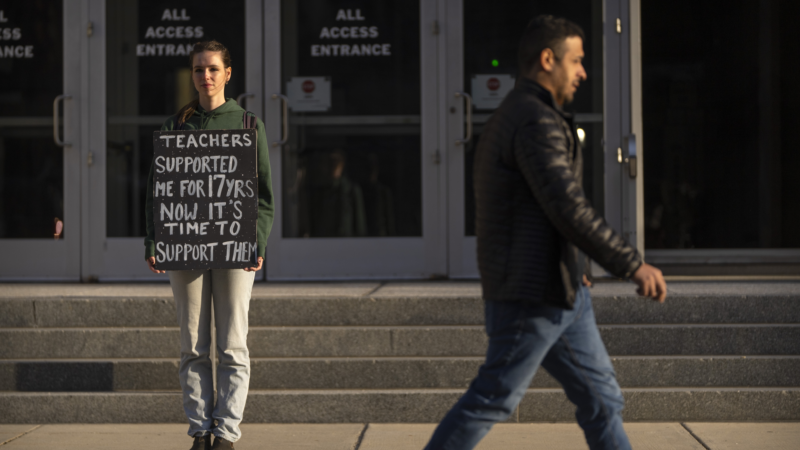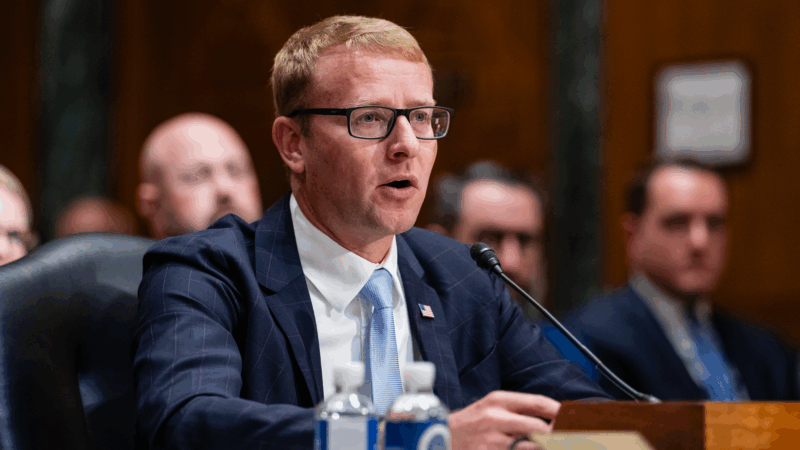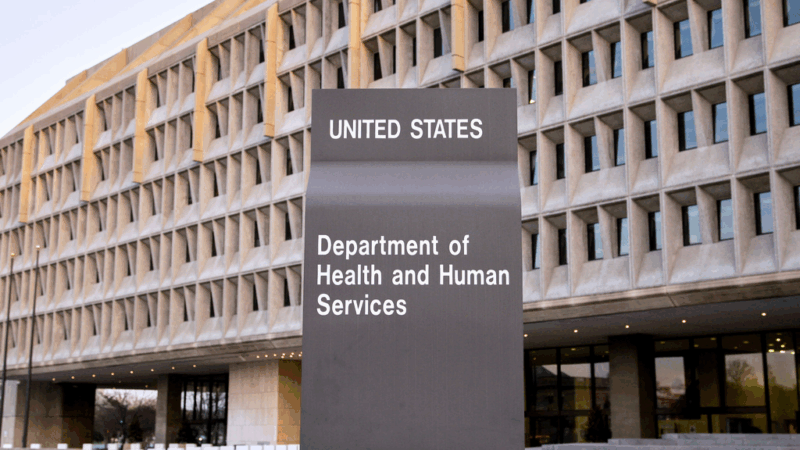What parents, teachers and school choice groups think of Education Department cuts
Reaction to massive job cuts at the U.S. Department of Education came swiftly, with teachers unions and some parents groups condemning the moves, while supporters of school choice cheered them.
Employees of the department help send federal funding to high-poverty districts and students with disabilities; they make sure students aren’t being discriminated against at school, and they help college students pay for their degrees.
And now, their ranks are being cut by nearly 50%.
On Tuesday, the department announced that more than 1,300 positions would be terminated, and roughly another 600 employees had already accepted voluntary resignations or retired. Shortly after that announcement, workers began receiving emails telling them they would soon be out of a job.
National education groups were quick to respond. Teacher unions and some parent groups condemned the cuts.
Randi Weingarten, the head of the American Federation of Teachers – one of the nation’s largest teacher unions with 1.8 million members – denounced the cuts as “an attack on opportunity that will gut the agency and its ability to support students, throwing federal education programs into chaos across the country.”
In a statement, Weingarten said that 10 million students “who rely on financial aid to go to college or pursue a trade will be left in limbo. States and districts will be forced to navigate funding crises without federal support, hurting millions of students with disabilities and students living in poverty.”
The National Parents Union, which represents more than 1,800 parent organizations across the country, said in a statement, “Parents will not stand by and watch our children’s future be dismantled. We are ready to fight back.”
School choice advocates say cuts will help usher in “a golden age in American education”
Trump and his education secretary, Linda McMahon, have made it clear they intend to expand the federal government’s role in supporting school choice. Advocacy groups promoting charter schools, vouchers and other choice initiatives hailed Tuesday’s move as a step in that direction.
“This news is another signal that the bureaucratic state is coming to an end in America, ushering in a golden age in American education that is centered on sending education back to the states and parents,” the American Federation for Children said in a statement. “The time is now for school choice in every state and dismantling the federal education bureaucracy.”
On Wednesday, President Donald Trump addressed the cuts, saying, “The dream is we’re going to move the Department of Education – we’re going to move education into the states, so that the states, instead of bureaucrats working in Washington, so that the states can run education.”
Most public school funding comes from state and local governments. The federal government, in general, provides only a small fraction of schools’ overall funding – between 6 and 13%, according to a 2018 report from the U.S. Government Accountability Office.
The Center for Education Reform, another group working to expand school choice, said in a statement that this reduction in force “paves the way for ensuring that remaining federal program dollars not restricted by statute are directed to follow students where they are educated, regardless of the type of school.”
Democratic members of Congress generally oppose school choice, arguing it takes resources away from local public schools. And while Trump campaigned on expanding school choice, Republicans don’t all agree on the best policy approaches.
During McMahon’s confirmation hearing, Republican Sen. Lisa Murkowski of Alaska pointed out that many rural Republicans oppose school choice because, “it works if you’re in a city,” but in many remote Alaska districts, “there is no choice.”
Reporting contributed by: Cory Turner and Jonaki Mehta
Elon Musk’s X faces bans and investigations over nonconsensual bikini images
After the social media app's AI chatbot started generating sexualized images of women and children, two countries have blocked it and several more have launched investigations.
Trump administration tells states to end ‘orphan tax’ on foster kids
There's a growing move to end what some call "the orphan tax" and stop states from taking benefit checks from children and youth in foster care.
Flu shot recommendation for kids dropped just as the illness rages
The Centers for Disease Control and Prevention dropped its advice that kids get an annual flu shot at a time when flu cases and hospitalizations are surging.
Trump calls for a 10% cap on credit card interest rates
With credit card interest rates near modern highs, President Trump says he wants to cap the rates for one year.
Playing Grateful Dead songs with Bob Weir: Don Was remembers
The Grammy winner and Blue Note label head recalls the unique challenges and rewards he faced when the late Bob Weir recruited him for an intimate new project in 2018.
A judge orders HHS to restore children’s health funding as a lawsuit continues
The judge ordered the restoration of nearly $12 million in funding to the American Academy of Pediatrics, including money for rural health care and the identification of disabilities in children.








